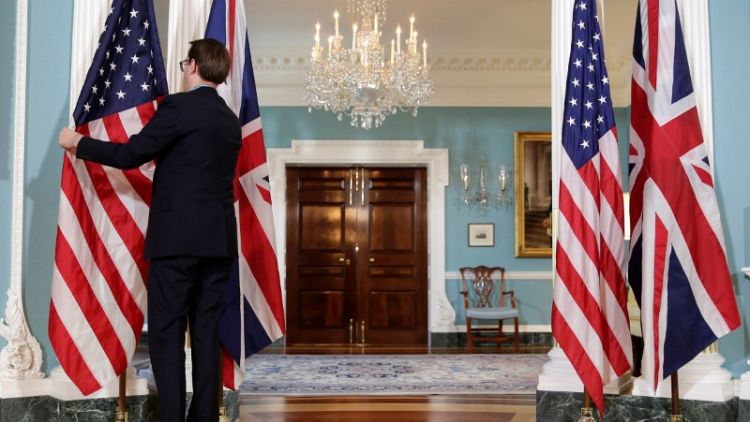LONDON (Reuters) - Britain wants to agree a post-Brexit trade deal with the United States quickly, but the terms have to work for both sides, a British spokeswoman said on Friday ahead of a meeting between Prime Minister Boris Johnson and President Trump.
Johnson, only a month into his leadership, will travel to the French seaside resort of Biarritz on Saturday for a G7 summit where his every move will be scrutinised for clues on how he will position Britain between the European Union and the United States after leaving the EU on Oct. 31.
He will meet Trump on Sunday morning for what are expected to be positive talks on trade and Brexit, as well as covering international topics where the two sides do not see eye to eye, like Russia, the Iran nuclear deal and trade policy on China.
Both Britain and the United States have talked up the prospect of a UK-U.S. trade deal - seen by Brexit advocates as one of the main advantages of leaving the EU - but critics say Trump's administration will drive a hard bargain.
On Friday, the government said it would not rush into a deal, cooling expectations of any formal timetable for trade talks being agreed in Biarritz.
"Of course we want to move quickly, but we want to get the right deal that works for both sides," the spokeswoman told reporters.
Britain has so far failed to agree a deal with the EU to mitigate the disruption caused by its unprecedented departure from the EU, increasing the chances of an unmanaged exit that would shock the global economy.
The government has previously rejected criticism from the opposition Labour Party and others that a trade deal with the U.S. could compromise Britain's state-funded National Health Service and lower food and animal welfare standards.
Earlier this month, senior Trump adviser John Bolton came to London with a message from Trump that the United States would do whatever it could to help the country through Brexit and set aside thornier diplomatic issues until later.
Bolton also mooted the possibility of a series of rapid sector-by-sector trade deals that could take effect as early as Nov. 1, although Britain has expressed a preference for one overarching deal.
(Reporting by William James; editing by Stephen Addison)



